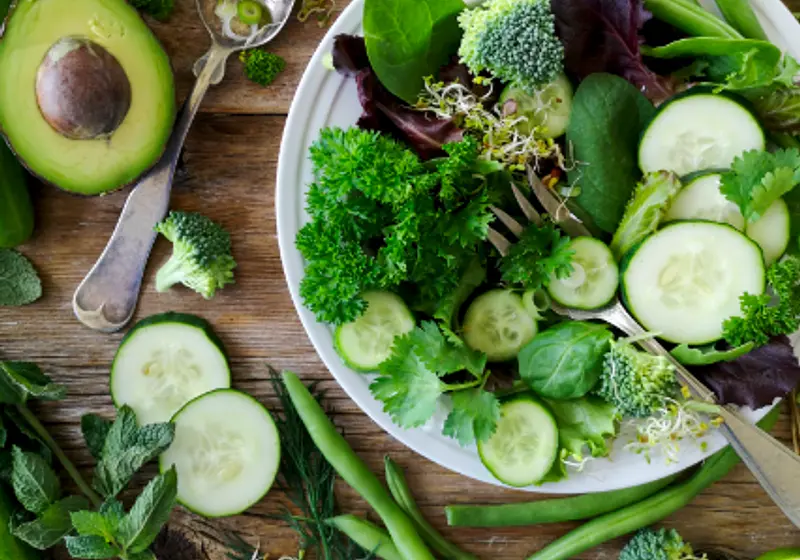Maintaining a healthy, balanced diet is of utmost importance for any teen athlete. However, it is an aspect often not prioritized, despite its significant impact on performance. Teenage athletes are often very busy with academics and extra-curriculars and may also be easily influenced by their peers and environment, leading to an unhealthy and detrimental diet.
The benefits of proper nutrition are numerous - enhanced strength and endurance as well as more efficient muscle repair. Furthermore, eating well can lead to increased growth and development which is particularly vital for a young athlete. So, here's some information to help!
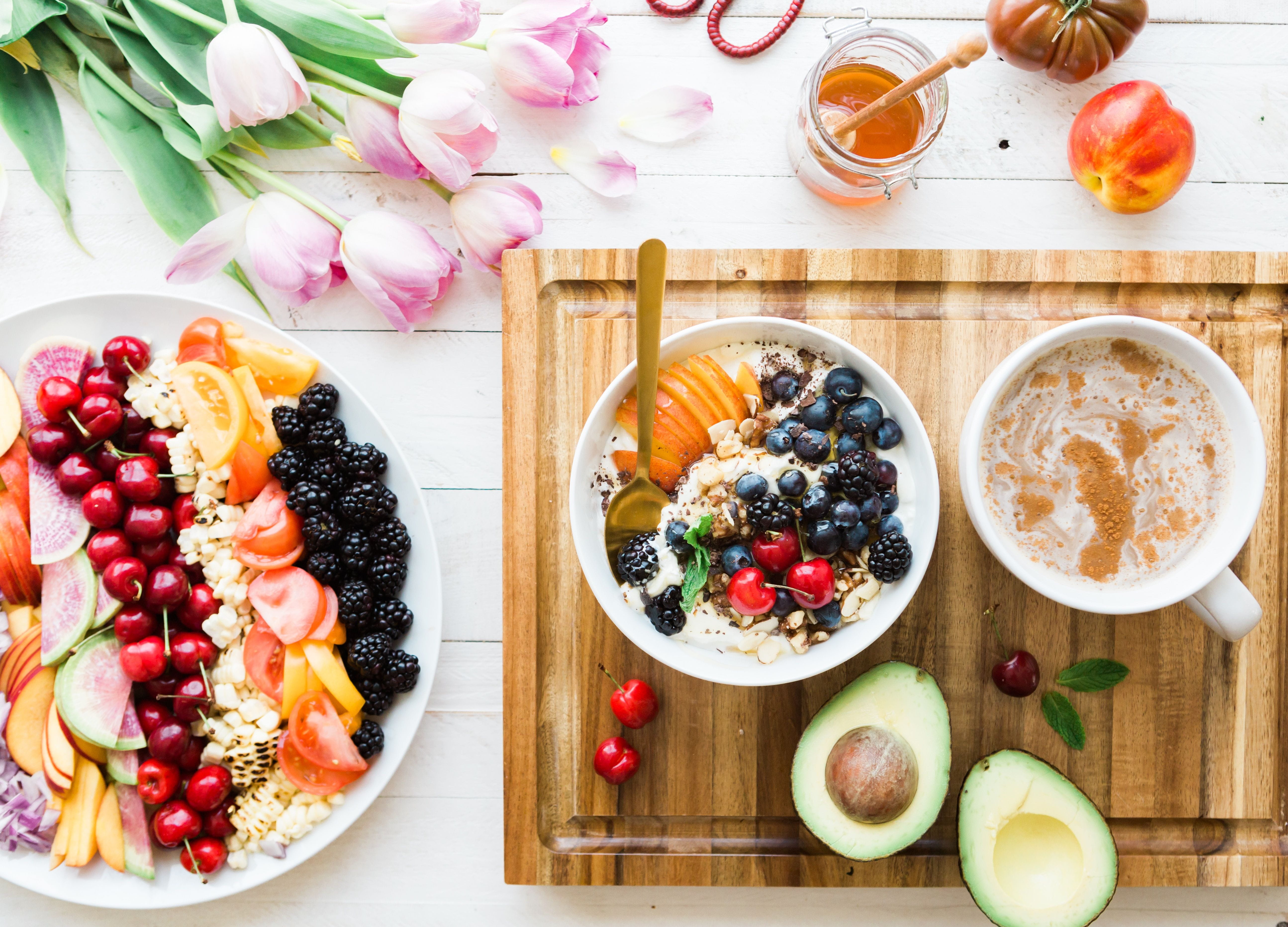
Image Credit: Brooke Lark from Unsplash
A Quick Look at the Fundamentals
Macronutrients, such as carbohydrates and protein, are essential energy sources to effectively fuel your body. They play a crucial role in repairing and rebuilding muscles for strength and recovery, whether this be post-training or during a period of injury. Oats, sweet potatoes, and quinoa are all high in carbs; meat, eggs, pulses, and beans are packed with protein.
Minerals, such as Iron and Calcium, build bones, keep the heart healthy, and support the cardiovascular system. Iron, in particular, is used in the production of hemoglobin, so increased intake improves the body’s oxygen-carrying ability. Fantastic options include tofu, legumes, nuts, and raisins.
Fibre is also a fundamental element in any athlete’s diet. This specific type of carbohydrate speeds up muscle healing and assists with weight management, which is especially vital during injury when training may be reduced. Whole grain, brown rice and pasta, and specific fruits and veg are great options to add fiber to your diet. Consuming these foods provides a slow release of energy which is ideal for long training sessions.
Antioxidants, such as vitamins C and E, are also key components to maintaining a nutritious diet. Vitamin C can have a considerable impact in lessening muscle inflammation - not necessarily caused by injury but also as a result of intense training and physical exertion. It is recommended to add vitamin C-rich foods alongside meat, beans, or pulses as it assists with the absorption of Iron.
These include citrus fruit and cruciferous vegetables, such as broccoli, cauliflower, and kale. Vitamin E is of equal importance - it maintains a healthy immune system and can prevent oxidative damage caused by excessive oxygen intake during sports. It is also regularly used by athletes to ease muscle cramps and soreness. Look no further than sunflower seeds, avocado, and peanut butter as wholesome Vitamin E sources.
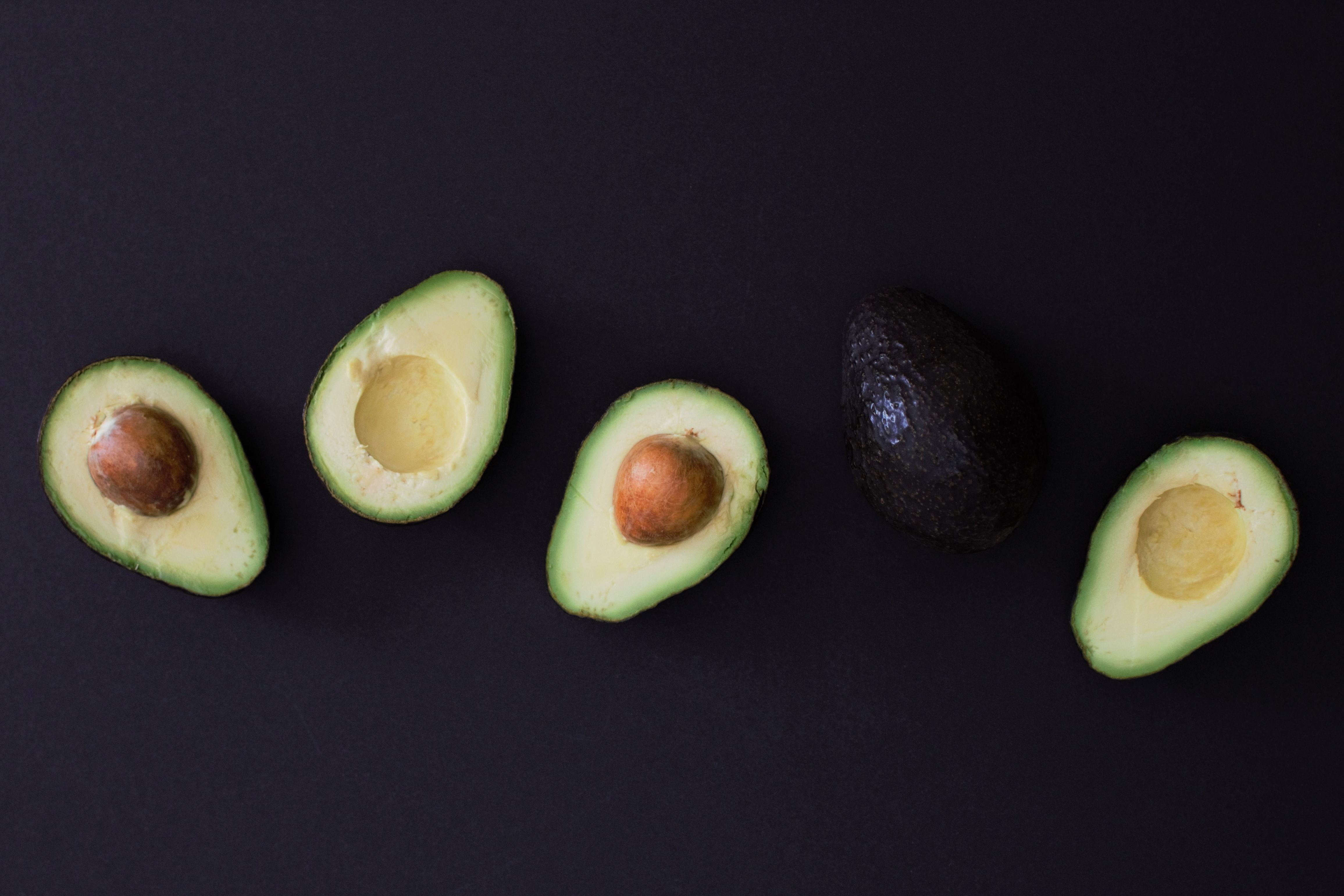
Image Credit: Isabella Fischer from Unsplash
Girl Power
As a female teen athlete myself, there are special considerations we must take when managing our diet. Firstly, female athletes are particularly prone to deficiencies in Iron, Calcium, and Vitamin D, so special changes should be made to tackle this. It is also important to understand the menstrual cycle and therefore be able to slightly alter your diet according to each stage.
For example, during the luteal phase (which occurs in the second half of the cycle), cravings and increased hunger are often experienced. It is therefore vital to adjust your food intake to counteract your body’s heightened calorie usage. Dark chocolate, nuts, and dried fruit are my go-to snacks to satisfy cravings and boost calories with minimal salt and sugar. Finally, remember to stay hydrated throughout the day to reduce headaches and PMS, and ensure these symptoms have minimal impact on your training and performance capacity.
To Plant or Not to Plant
Vegetarianism for athletes has been a long-debated discussion among nutritionists, with strong arguments for and against it. Some have highlighted that plant-based diets are low in saturated fat, meaning that they improve athletic performance by enabling more oxygen to reach muscles. In addition, meat is high in cholesterol which exacerbates muscle inflammation, and insufficient protein is no longer a problem with numerous vegetarian alternatives including lentils, beans, and nuts.
However, others dispute that vegetarian athletes are more likely to struggle with nutritional deficiencies, notably in iron. Athletes already lose high amounts of iron through sweat, and the fact that iron isn’t absorbed as efficiently from plant sources aggravates this. Moreover, following a plant-based diet can adversely affect hormone levels, which could have severe health and fitness implications including fatigue, weight loss, and increased risk of injury. In conclusion, vegetarianism is a popular dietary choice adopted by many successful athletes such as Novak Djokovic, Mike Tyson, and Venus Williams. Overall, however, it is a personal decision that presents both benefits and drawbacks. It is important to note that if a vegetarian lifestyle is pursued, teen athletes must form a well-balanced dietary plan, tailored to their energy requirements.
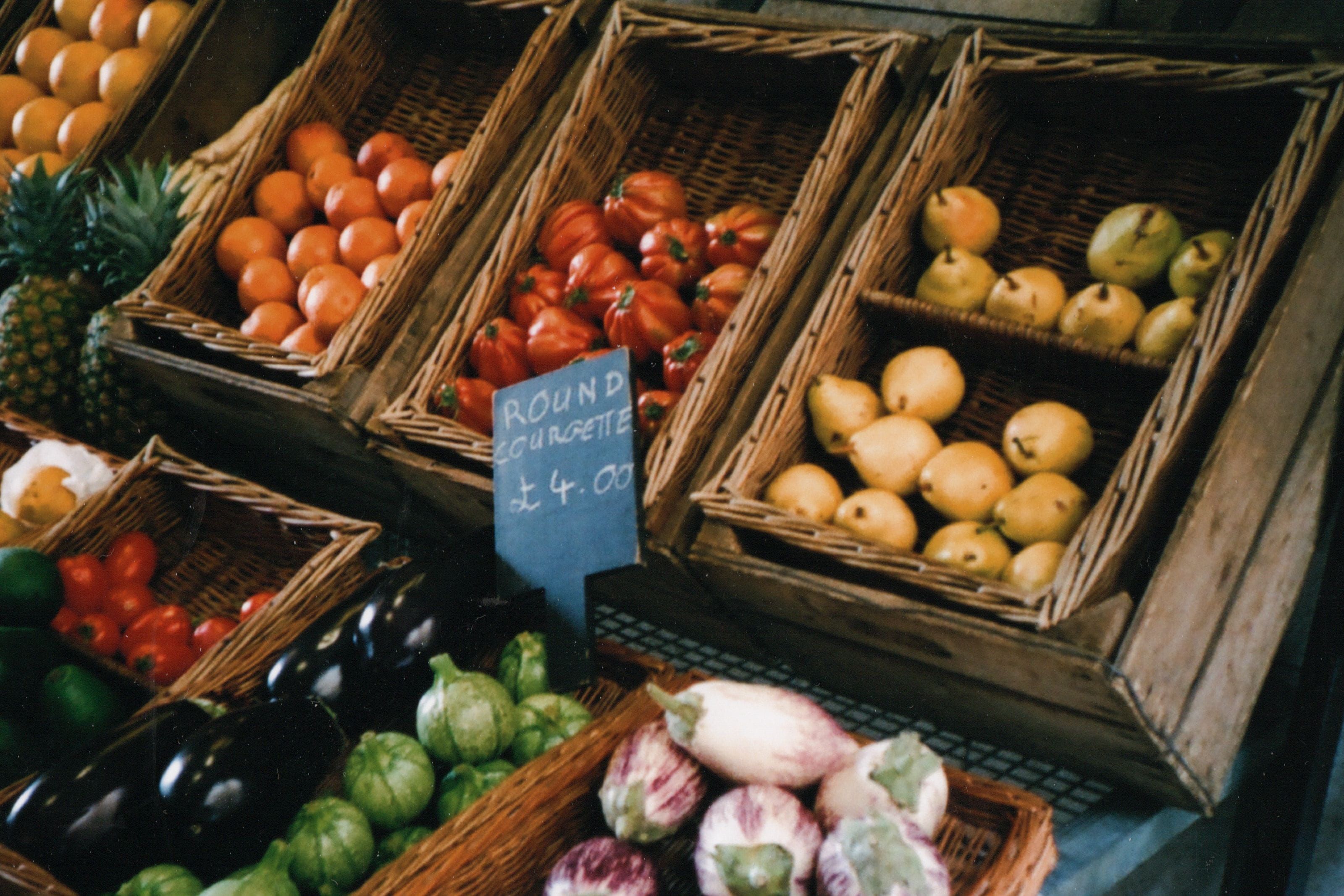
Image Credit: Scott Evans from Unsplash
For the Busy Athlete
- Homemade trail mix is also a handy idea for a practical yet nutritious snack on the go. Simply choose a mixture of nuts, seeds, and dried fruit as a convenient pick-me-up ( antioxidants, protein, fiber, iron)
- Smoothies are a useful (and delicious) way to refuel post-sports. Blend unflavoured Greek yogurt and a few of your favorite fruits ( mango, banana, and most berries are often recommended) to quickly replenish electrolytes and calories lost during your workout (potassium, protein, antioxidants).
- Sourdough or wholewheat toast is a high-fiber option upon which countless nourishing toppings can be enjoyed. Try avocado or tomato with cheese, peanut butter, and banana, or scrambled eggs. (Fibre, carbohydrates, protein, antioxidants, Vitamin E)
- A simple and immediate energy boost can be found with raw veggie sticks (usually celery or carrot) alongside hummus or guacamole. It would be beneficial to note, however, that homemade dips are best, as shop-bought ones often have a high salt content. ( Vitamin E, Vitamin C, antioxidants, protein).
- A wholesome bowl of porridge is a great start to the day for any teen athlete. Opt for plain oats as a slow release of energy and skimmed milk. Experiment with a combination of nuts and fruit, and drizzle on a natural sugar such as honey or agave syrup to sweeten. (Fibre, protein, antioxidants, calcium, carbohydrates, Vitamin E)
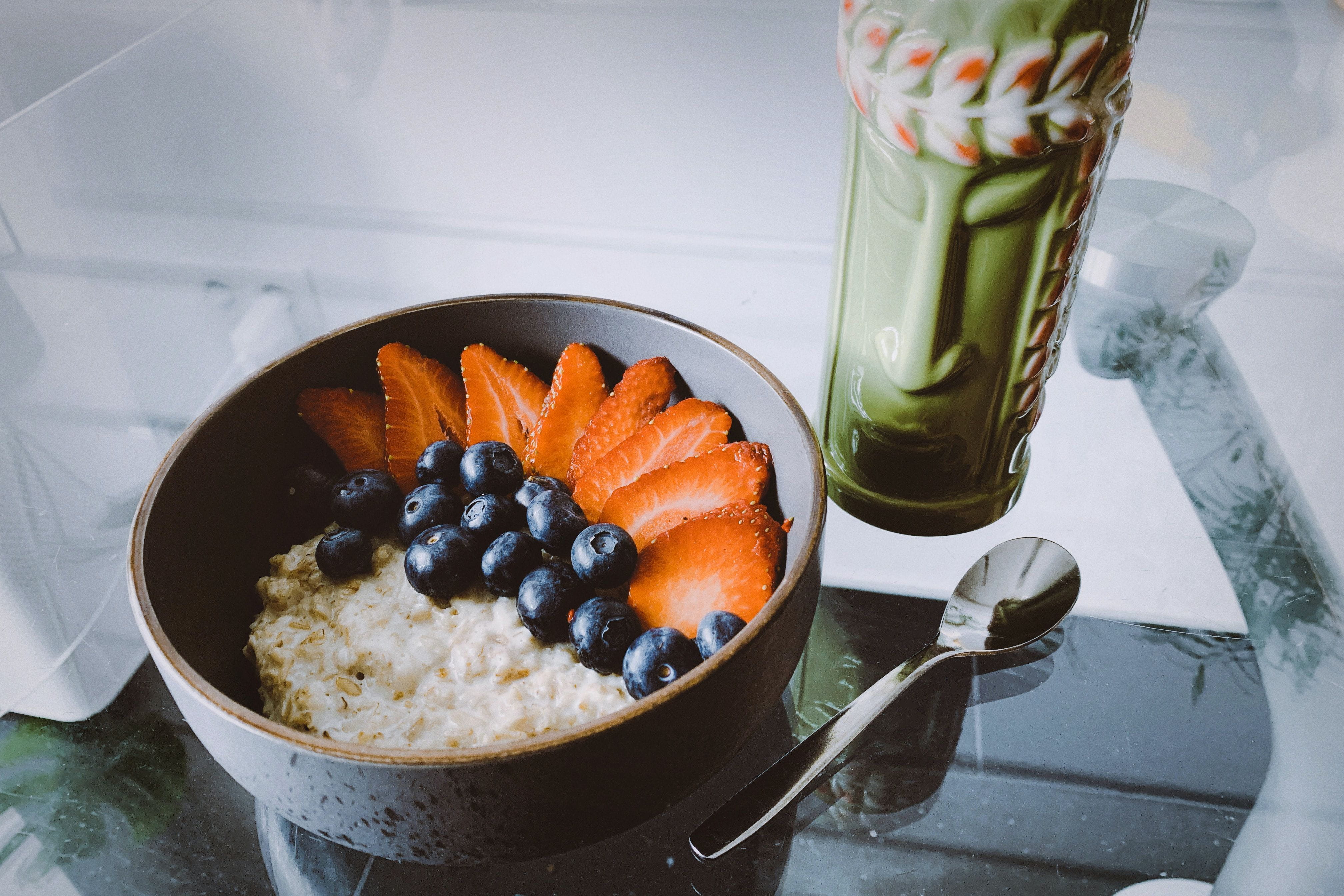
Image credit: Valery Fedotov from Unsplash
Final Advice
It is of course challenging as a teen athlete to manage the hectic schedule of balancing academics and sport. But here are a few final changes that can easily be made for a healthier diet:
- Opt for bananas and dry fruit or nuts as portable snacks rather than high-sugar sports bars
- Prepare food the night before to have it ready to take for training or school in the morning.
- Switch from white to wholewheat (eg. Rice, pasta, bread) for one meal a day
- Ditch high-sugar sports drinks for electrolyte alternatives such as coconut water, which is readily available in most supermarkets.
Although the intake of sugar, salt, and fats should indeed be minimized, it is a misconception that they should be completely excluded from a teen athlete’s diet. Sugar and salt are necessary to provide the body with energy whilst fats protect vital organs and encourage the absorption of multiple vitamins. On the other hand, foods with excessively high levels of any of these should certainly be avoided.
For example, athletes’ consumption of sports bars and drinks, often during competition and training, can lead to a crash before receiving the energy boost due to the sugar levels. These products also contain caffeine which can have a similar impact and must be averted by young athletes who are more sensitive to its effects such as increased heart rate and blood pressure.
Finally, it's important to consult your coaches or a nutritionist before making any dietary changes for further information on how what you eat can impact on performance.


